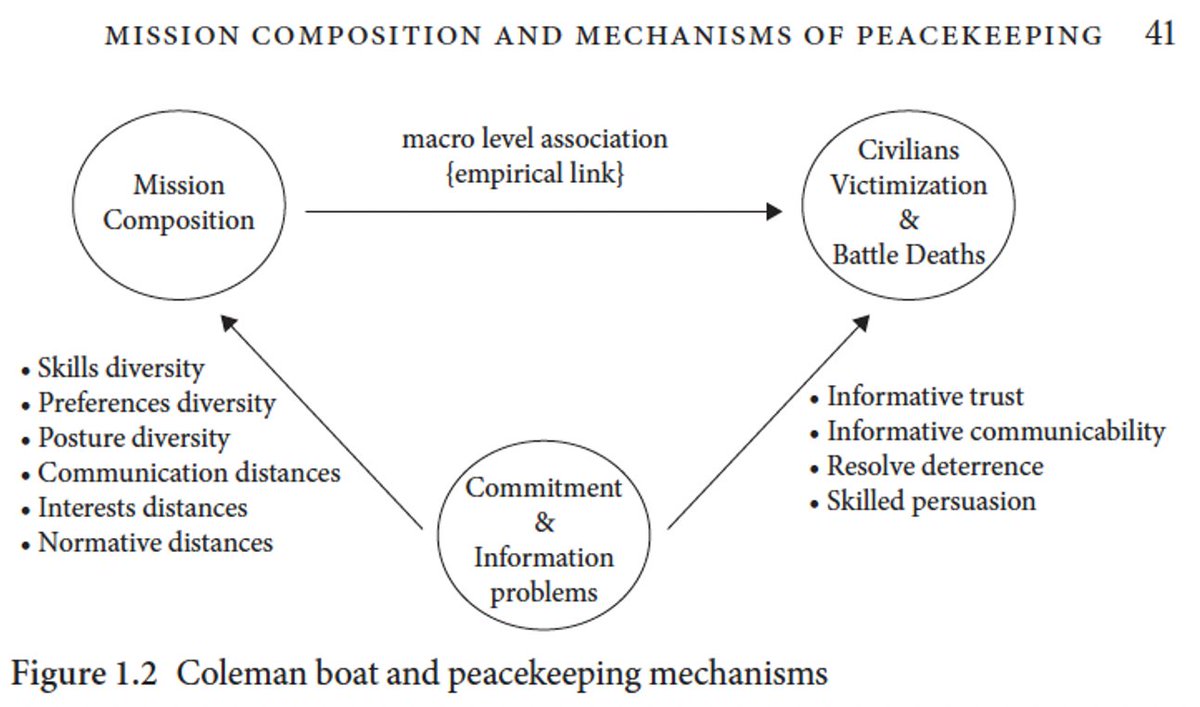It was fun! I do it to learn more from graduate students' research projects and to push me to think systematically about theorizing. It is my "research gym", the only gym I'm decent at. I prepared a handout and slides (but I forgot to use them. Here some thoughts on theorizing. https://twitter.com/gspataf95/status/1355221325074333701
“By theorizing I mean the process that comes before a theory is presented in its final form” Swedberg 2016, 7
“Although everyone is for "more theory," most of us have rather little understanding of how to get "more theory”.”
Dina A. Zinnes, 1980, 315
“Although everyone is for "more theory," most of us have rather little understanding of how to get "more theory”.”
Dina A. Zinnes, 1980, 315
How do we shape, draft and calibrate our theory? It is assumed we learn about theorizing via emulation, comparison and practice. Theorizing is a process and we should not confound it with the outcome(a theory). There are pre-theoretical steps/tips that can facilitate the process.
Caveats: this is my way to help theorising. These suggestions are just a theorizing “banister”, nothing more. You will have to climb the stairs for your theory.
What we're aiming at: a theory is a tentative conjecture about the cause of some phenomenon of interest. Logical statement based on assumptions that explain a causal mechanism from which we can derive observable hypotheses and therefore expectations.
"Analytical Thinking": Simplifying should not be oversimplification but can help us to navigate the complexity of the social reality. Only from a simple framework we can start then adding items. Theorizing is like cooking, it easy to add elements but hard then to remove them.
Start with:
a. Clear/sharp research question. For help see my piece with @adammccauley on research questions.
b. You define your actors and level(s) of analyses: who they are? Why? What are their interdependencies? What could be alternative levels of analysis or actors?
a. Clear/sharp research question. For help see my piece with @adammccauley on research questions.
b. You define your actors and level(s) of analyses: who they are? Why? What are their interdependencies? What could be alternative levels of analysis or actors?
c. Define and link to relevant literature your core concepts:
•What are the core concepts of your theory (DV, IVs, and mechanisms).
•Define them succinctly.
•Explain what are “adjacent” but not “correct” concepts.
•Explain what alternative important concepts could be
•What are the core concepts of your theory (DV, IVs, and mechanisms).
•Define them succinctly.
•Explain what are “adjacent” but not “correct” concepts.
•Explain what alternative important concepts could be
Who are the actors, their arenas and their interactions and interdependencies? My. friend and colleague @egocantos wrote very useful in order to think systematically about: actors, space of actions and interactions.
"To explain an event is to give an account of why it happened...this takes the form of citing an earlier event as the cause or the event we want to explain . [But] to cite the cause is not enough: the causal mechanism must also be provided, or at least suggested." Elster (1989,3)
I use some examples from my recent book, "Composing Peace" w/ @_vincenzobove & @ruffa_chiara on, first, using tables to present mechanism and also drawing theory based on the Coleman's boat diagram.
We aim to explain what is the "story" (as Dina Zinnes'd say) on how X affects Y.
We aim to explain what is the "story" (as Dina Zinnes'd say) on how X affects Y.
An exercise I suggest is to draw a theory using different modalities (2X2 Matrix, Coleman's diagram, Sequencing graphs). It is important to specify actors, relations , core phenomena. But also try to draw other people theories.
Another exercise to learn how to play with theorizing and mechanism building is to "simulate findings" between X & Y and explain them!
A checklist for start theorizing & link to my workshop handout. Of course, this is not a "general fixer" and it is a hands-on workshop focusing on research projects presented by phd students. But I hope this could somehow help also other graduate students. https://www.aruggeri.eu/graduate-material

 Read on Twitter
Read on Twitter
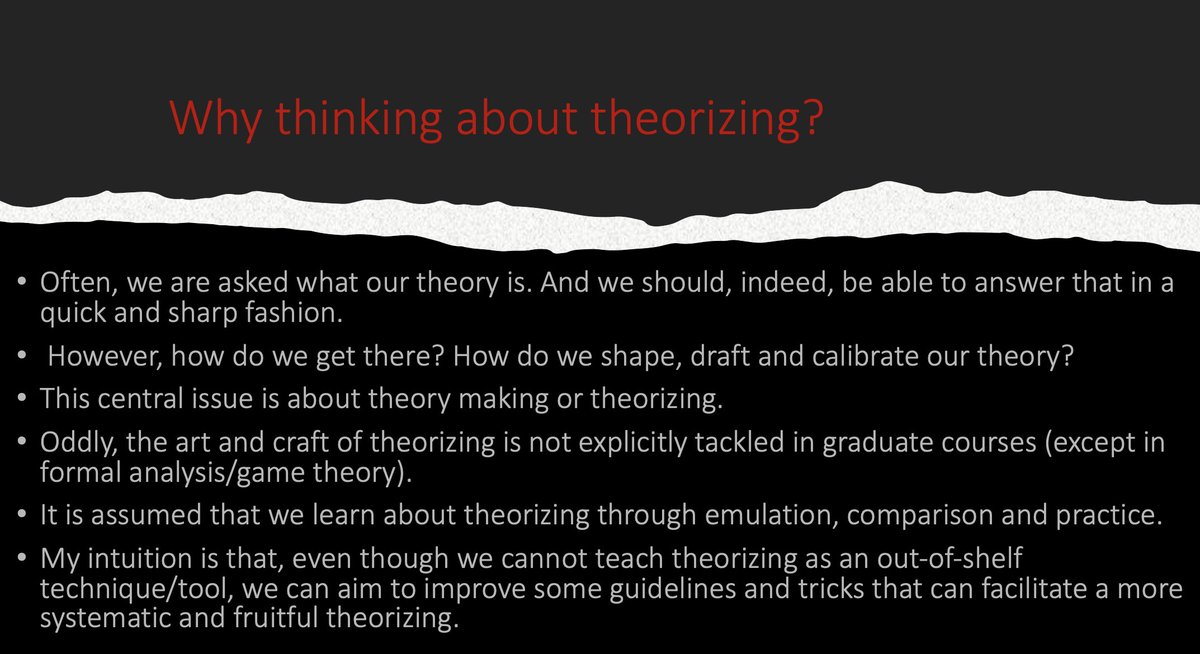
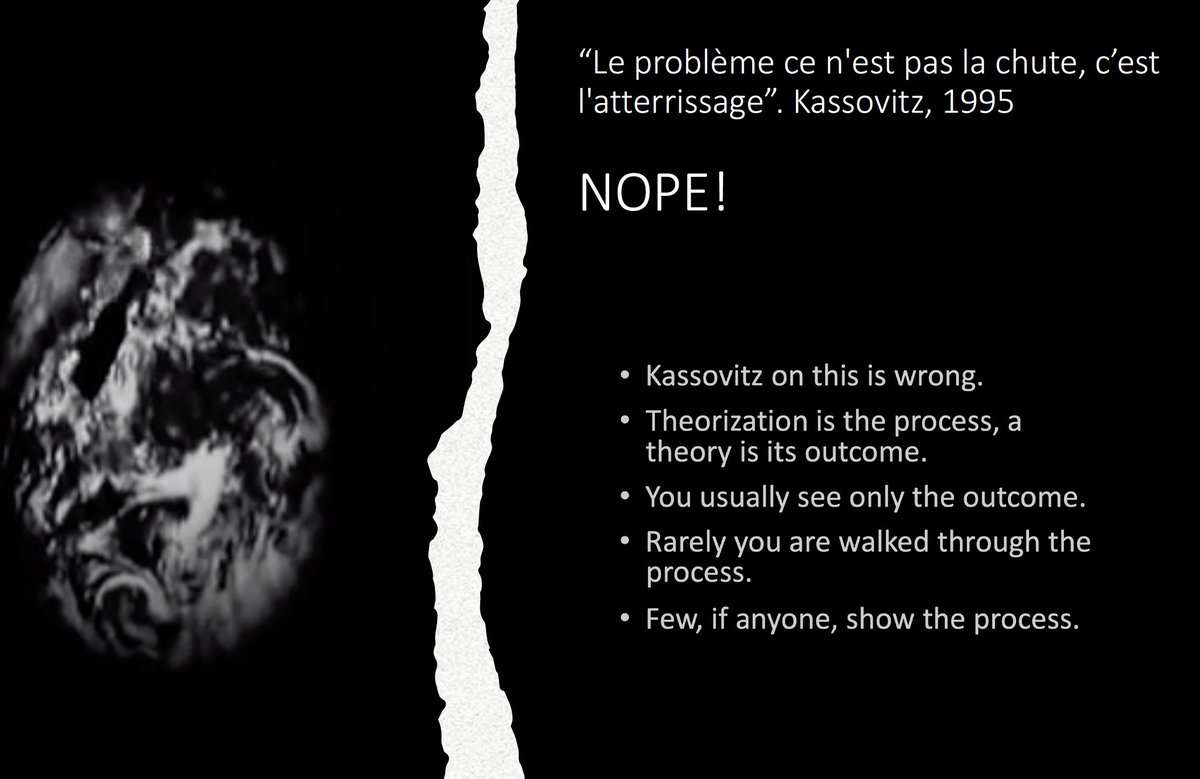
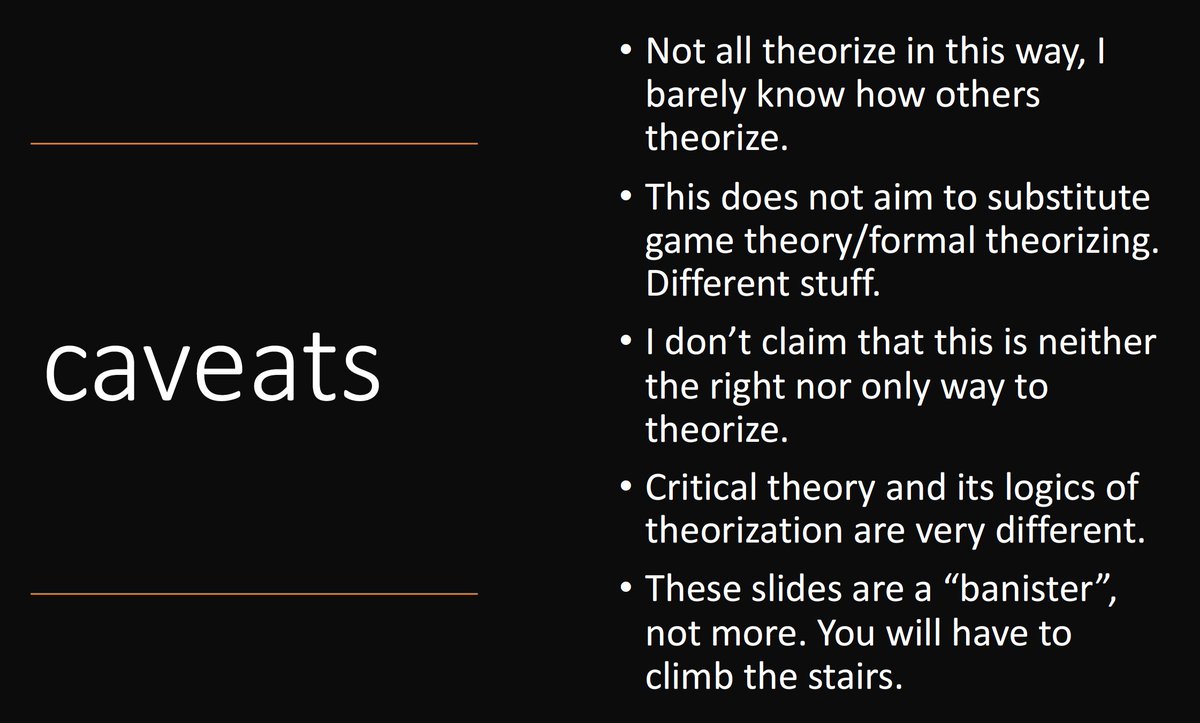
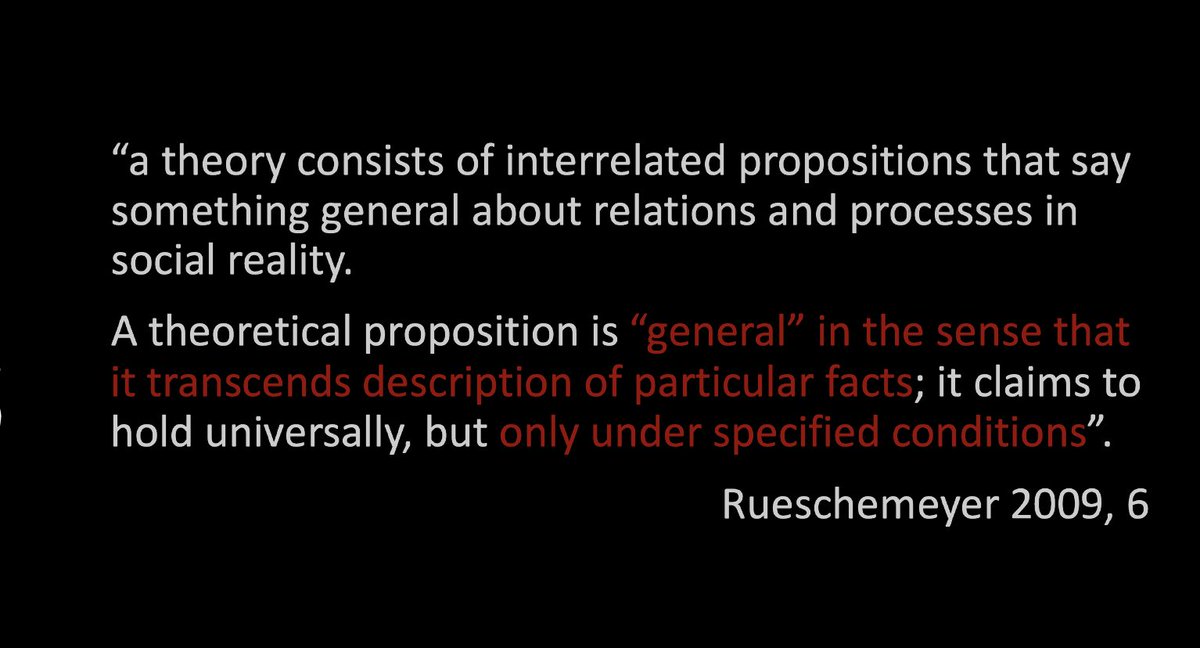

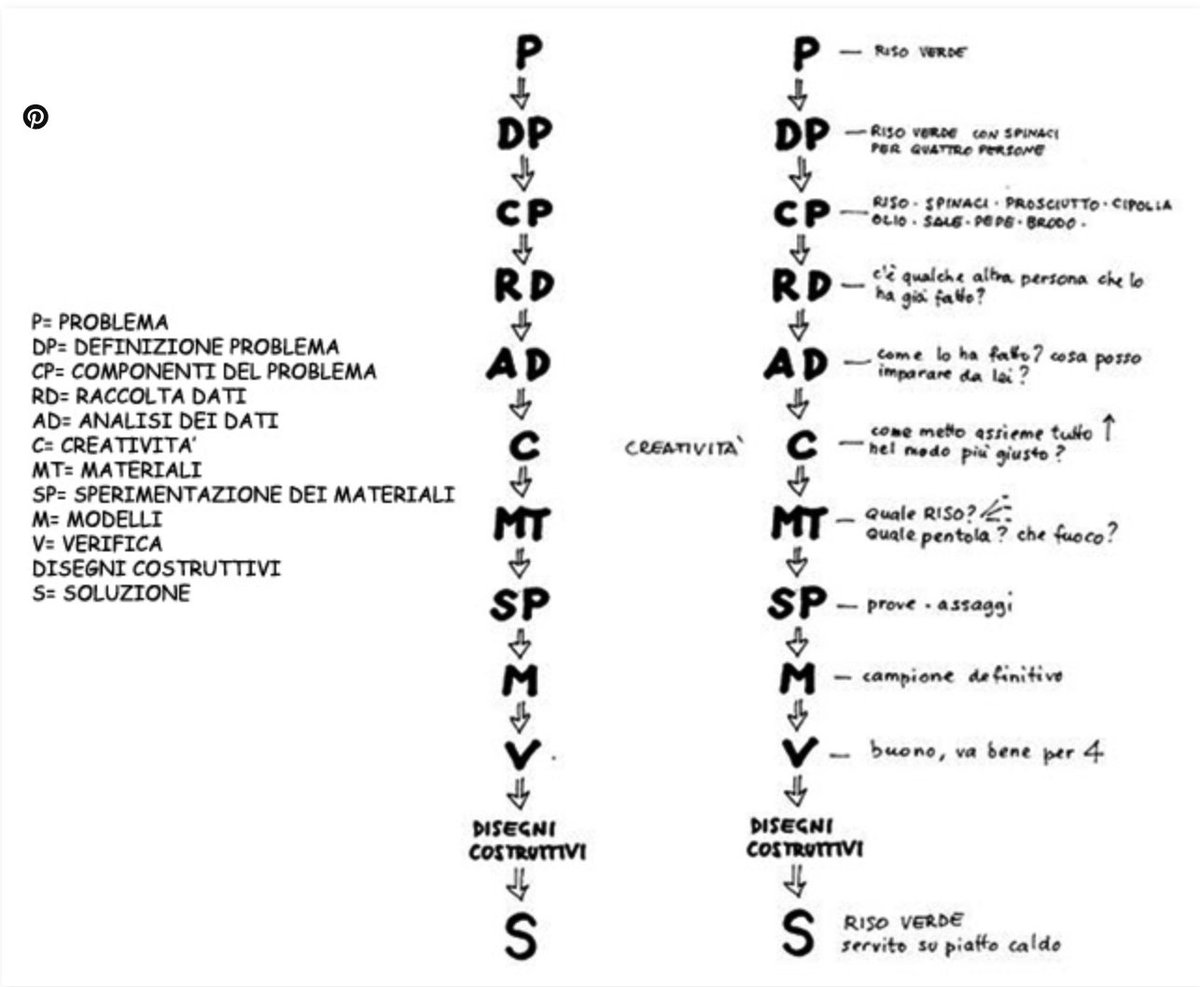
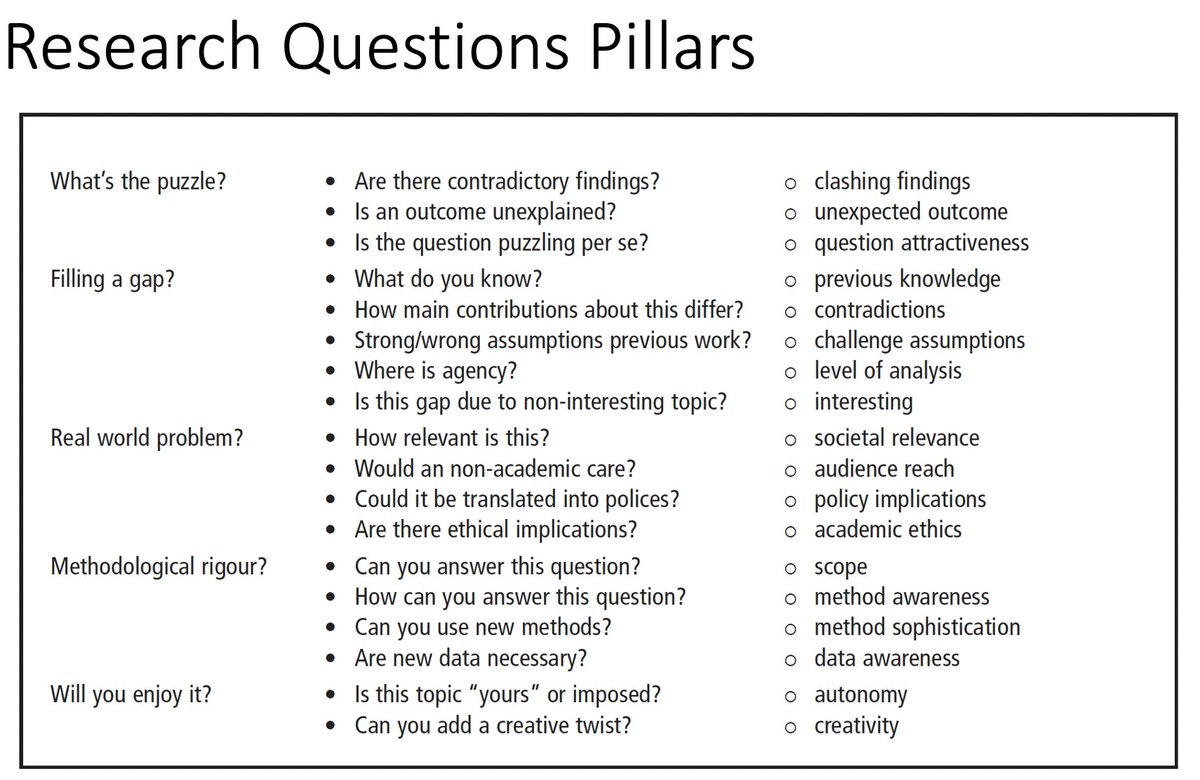
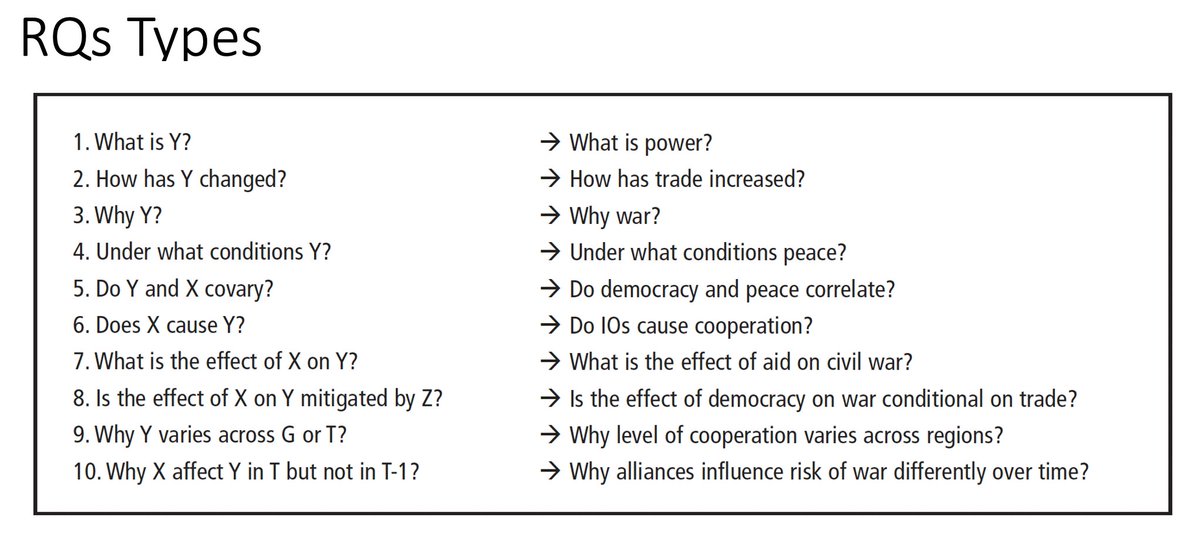


!["To explain an event is to give an account of why it happened...this takes the form of citing an earlier event as the cause or the event we want to explain . [But] to cite the cause is not enough: the causal mechanism must also be provided, or at least suggested." Elster (1989,3) "To explain an event is to give an account of why it happened...this takes the form of citing an earlier event as the cause or the event we want to explain . [But] to cite the cause is not enough: the causal mechanism must also be provided, or at least suggested." Elster (1989,3)](https://pbs.twimg.com/media/Es_-RTkXEAMujvl.jpg)

